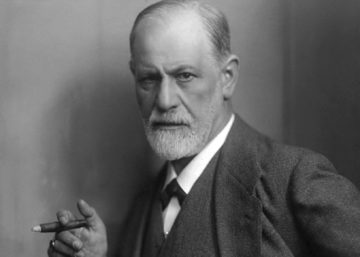Paul Franz at The Hedgehog Review:
 Lear is not to first to link the question of whether or not to mourn to speculation about the nature of value. Here, he traces that connection to a 1915 essay by Sigmund Freud, “On Transience,” that marks a second, if still somehow cryptic, focus of Imagining the End. Freud begins his essay by recounting a conversation in the Alpine countryside with a “young poet” who startled him by refusing to take pleasure in the beauties of the landscape because, he said, they are fleeting. Freud responded with the equally extreme assertion that “transience” is the source of all value. By the close of the essay, however, writing from what he now reveals are the depths of a devastating world war, Freud has adopted a chastened view. Unlike the poet, in whom he found a fear of the pain of mourning so great that it barred all attachment, Freud’s hope now, transcending the earlier dichotomy, is that what war has destroyed may one day be rebuilt, not eternally, but “perhaps on more solid ground and more enduringly than before.”
Lear is not to first to link the question of whether or not to mourn to speculation about the nature of value. Here, he traces that connection to a 1915 essay by Sigmund Freud, “On Transience,” that marks a second, if still somehow cryptic, focus of Imagining the End. Freud begins his essay by recounting a conversation in the Alpine countryside with a “young poet” who startled him by refusing to take pleasure in the beauties of the landscape because, he said, they are fleeting. Freud responded with the equally extreme assertion that “transience” is the source of all value. By the close of the essay, however, writing from what he now reveals are the depths of a devastating world war, Freud has adopted a chastened view. Unlike the poet, in whom he found a fear of the pain of mourning so great that it barred all attachment, Freud’s hope now, transcending the earlier dichotomy, is that what war has destroyed may one day be rebuilt, not eternally, but “perhaps on more solid ground and more enduringly than before.”
more here.
